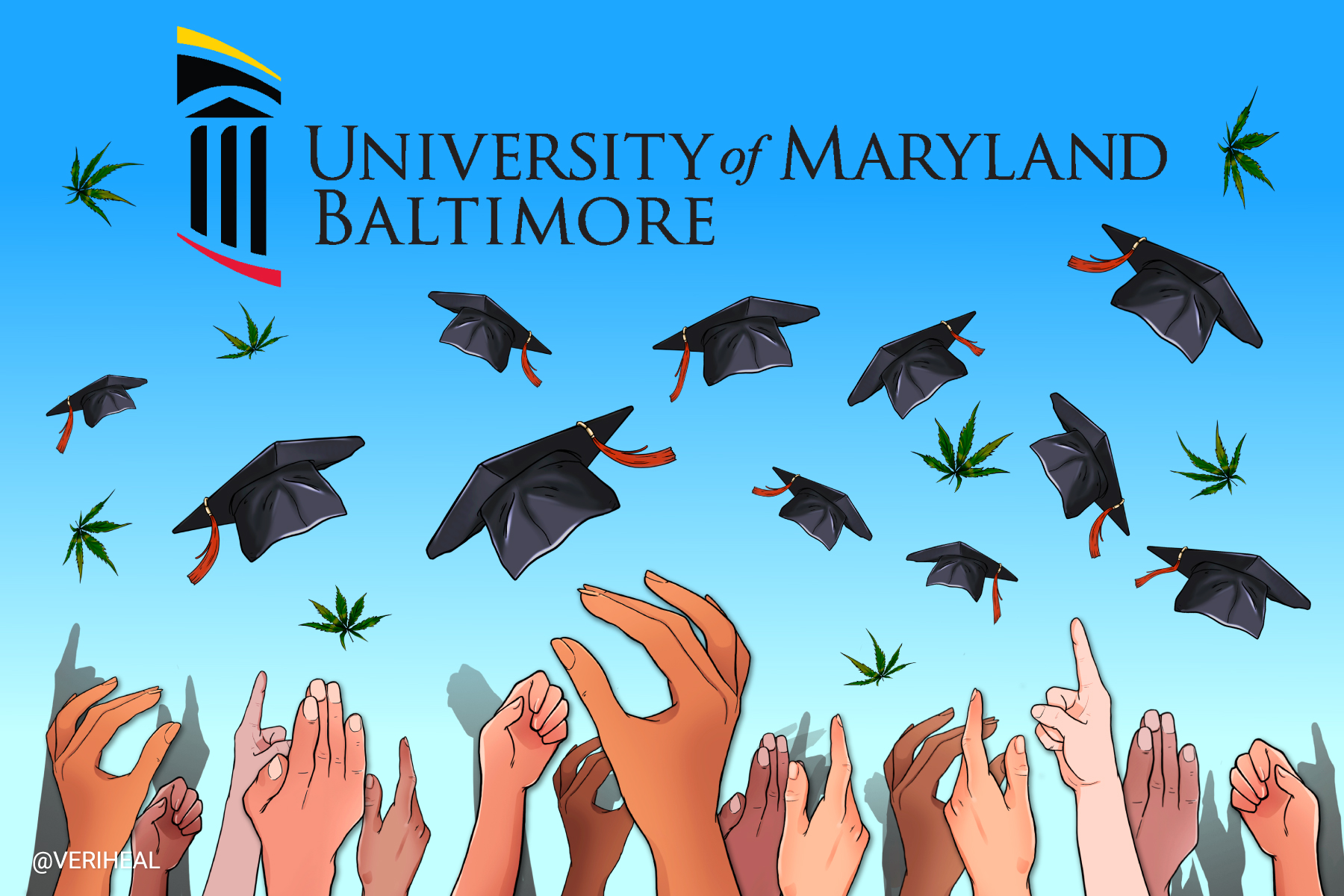The University of Maryland School of Pharmacy in Baltimore is inviting students to graduate under its Medical Cannabis Master of Science (M.S.) program. Stretching over two years, the program demonstrates growing acceptance for the cannabis plant, which is currently legal in 36 U.S. states for medical purposes.
The M.S. Medical Cannabis Science and Therapeutics program kicked off two years ago and has since managed to garner plenty of interest. As the very first graduate program specializing in medical cannabis studies, the appeal is not surprising.
Professors at Baltimore’s University of Maryland School of Pharmacy are striving to professionalize and normalize the ever-growing U.S. medical cannabis industry, which is projected to inflate to $16 billion by 2025. An initial 132 graduates are believed to have recently graduated with master’s degrees from the university’s medical cannabis program.
Main promoters of the program claim it is perfect for students who have achieved a bachelor’s degree and are currently employed by, or are hoping to gain, employment in the medical cannabis industry; a thesis is not essential for applicants to be accepted into the program.
Online instruction, merged with face-to-face communication, is included in the course. This, professors affirm, enables students to brush up on essential knowledge that will aid them in supporting patients and the medical cannabis industry at large. Besides these benefits, the course will also help to establish a well-informed medical cannabis policy.
About the M.S. in Medical Cannabis Science and Therapeutics
Established by the University of Maryland School of Pharmacy, which can be found at the university’s Shady Grove location, the M.S. in Medical Cannabis Science and Therapeutics program encourages enrollees to expand their knowledge on the following areas of the medical cannabis movement:
- Federal and state laws and policies pertaining to the medical cannabis industry
- Basic science (including chemistry, medical cannabis delivery systems, and pharmacology)
- Clinical uses (assessment, pathophysiology, and management of conditions that may be treated by the plant in its medicinal form)
- Potential negative effects and public health concerns.
Each student who partakes in the course must take five foundational courses in three categories: medical cannabis science, policy, and therapeutics. In addition to this, students will have the opportunity to select three optional courses according to their specific interests.
Upon completion of their elective courses, the following areas of medical cannabis education will be explored by students on a compulsory basis:
Why You Should Get Your Medical Marijuana Card
Veriheal has satisfied millions of patients nationwide by giving them access to these benefits
- Larger purchase limits
- Peace of mind
- Enhanced legal protection
- Access to higher potency strains
- Save up to 25% on cannabis purchases
- Skip the line at the dispensary
- Research methods
- A capstone course consisting of case studies, debates/discussions, and professional seminars.
A convenient aspect of the M.S. in Medical Cannabis Science and Therapeutics program is that the coursework can be completed online. All coursework completed online provides students with the utmost flexibility for assignment creation; especially since the coronavirus pandemic is making the process of studying at brick-and-mortar educational institutions fairly tricky at the current time.
Nonetheless, prospective students should be aware of the fact that students must journey to USG after each semester to engage in in-person meetings. These symposia will help students network with peers, as well as meet and communicate with experts in the cannabis-related fields of science, therapeutics, and policy.
How to Apply
The Fall 2021 admission of the University of Maryland School of Pharmacy’s M.S. in Medical Cannabis Science and Therapeutics recently closed, with the final admission date being May 1, 2021.
All students who are intent on broadening their understanding of the medical cannabis industry stand to benefit from the program. Examples of the types of applicants expected to enroll include dispensary owners, growers, health care professionals, policy/industry professionals, regulators, and scientists.
Individuals who don’t currently possess a bachelor’s degree from a trusted university or college will not be considered for the course. Eligible applicants must also be willing to embark on a journey to the USG at least once per semester — in the Fall and Spring.
All applicants are obligated to submit an online application, accompanied by a CV/resume, essay, letters of recommendation, and official transcript in order to be deemed an eligible applicant for enrollment in the M.S. in Medical Cannabis Science and Therapeutics.
Aspiring students are not required to input their GRE scores when applying for the M.S. in Medical Cannabis Science and Therapeutics. It should be noted that the university program does not deem applicants with F-1 or J-1 student visa sponsorship eligible to enroll with the University of Maryland, Baltimore.
You can read more information about the M.S. in the Medical Cannabis Science and Therapeutics course by visiting the How to Apply webpage.
Author, Share & Comments















